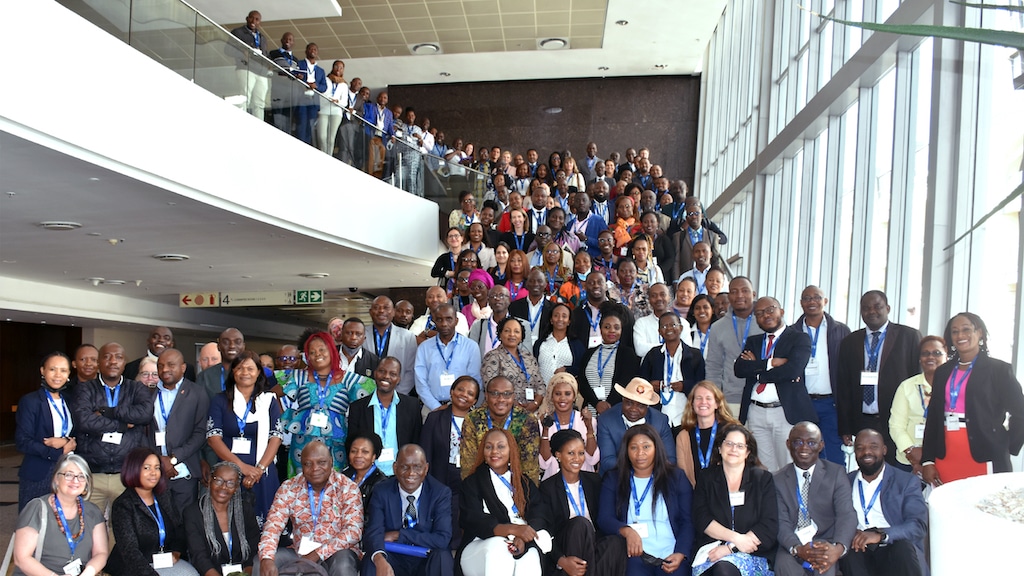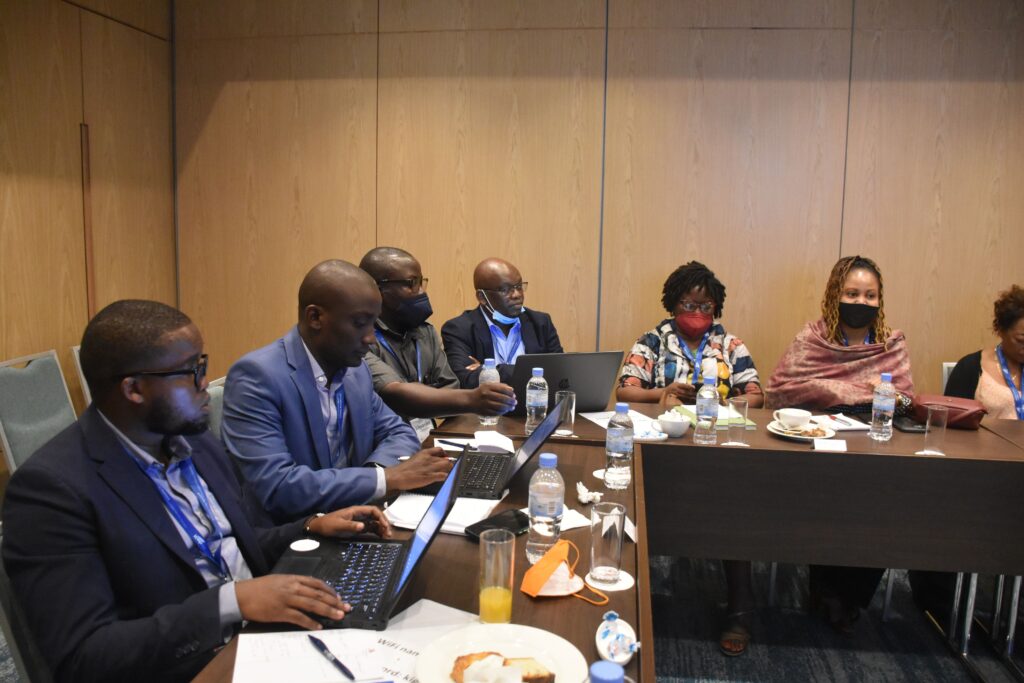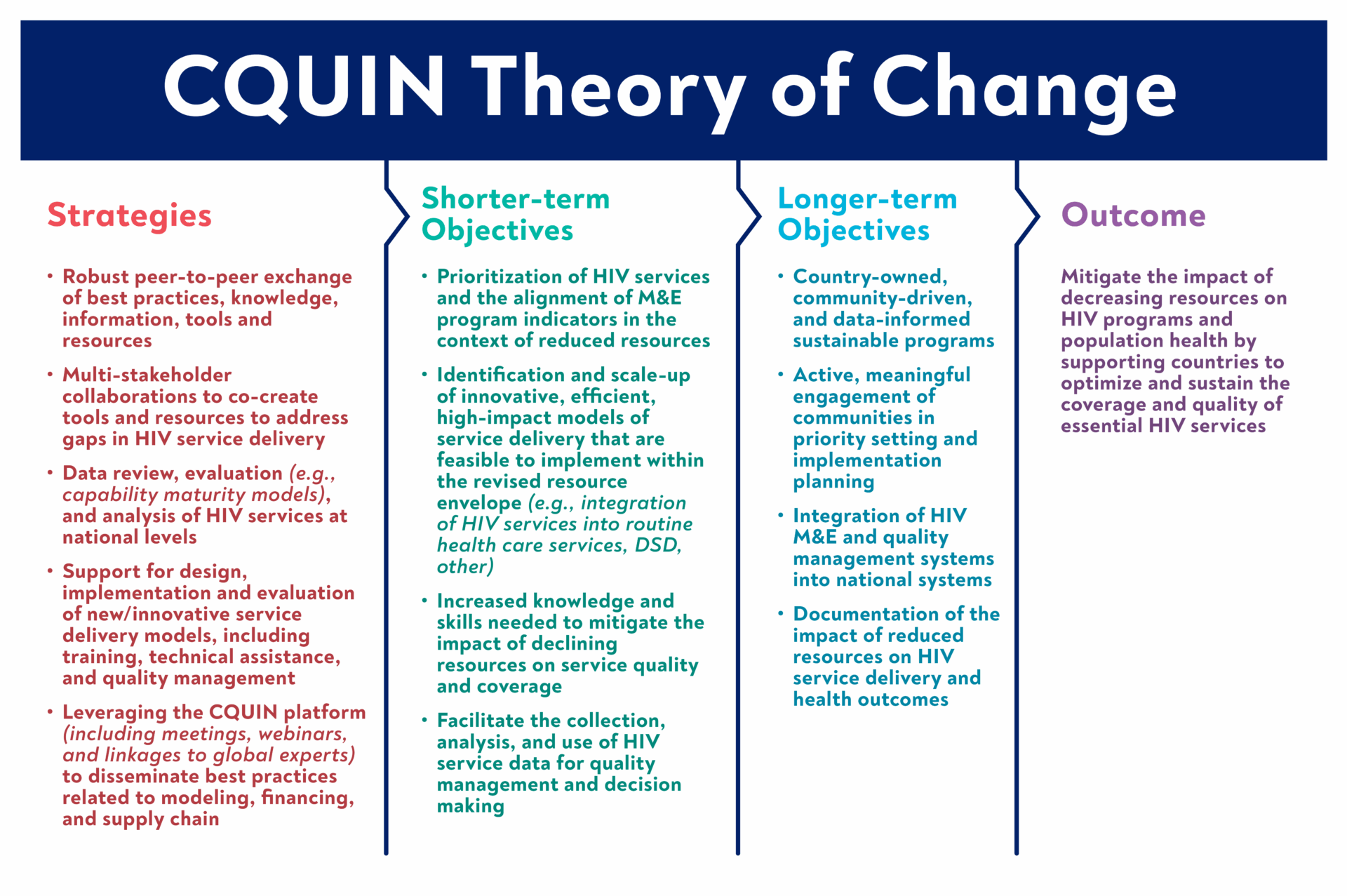What We Do
The network convenes health system leaders from 21 countries in Africa to participate in joint learning and information exchange, with the goal of optimizing HIV program outcomes by fostering high-quality, high-impact, and sustainable HIV services. Currently, the network is working with countries to mitigate the impact of decreased external funding on HIV programs and population health by supporting evidence-based scenario planning, prioritizatio,n and program redesign.
The Network
Through CQUIN, representatives from ministries of health and other key government departments, implementing partners, civil society, associations of people living with HIV, academic institutions, and donor agencies work to scale up HIV services according to each country’s unique needs and context. The network supports experience-sharing, peer-to-peer learning, exchange of resources and tools, and collaborative problem-solving.


Our Approach
CQUIN is a learning community designed to support national governments and their partners to design and deliver high-quality, high-impact HIV programs that are country-led, community-driven, sustainable and optimized for each country’s resource envelope. Ministries of health opt into the network to gain access to a wide range of resources, including peer-to-peer learning, technical assistance, workshops, country-to-country learning exchange visits, and virtual communities of practice, as well as support for quality improvement initiatives and program evaluation.
Through the CQUIN 2.0 pivot, the learning network has evolved to support countries to lead a more government-driven HIV response, bringing stakeholders to the table, including elevating community voices to align national HIV priorities and design HIV programs that are responsive and rooted in local realities.
– Maureen Syowai, Program Director, CQUIN and HIVE
Frequently Asked Questions
What is CQUIN?
CQUIN stands for the HIV Coverage, Quality, and Impact Network. CQUIN is a learning network of countries and stakeholders dedicated to improving HIV service delivery by disseminating evidence for innovative service delivery models, focusing on data and evidence, highlighting the perspectives of recipients of care, and systematically tracking change over time.
What does the network do?
We foster learning and collaboration among our members via the CQUIN website, conferences, workshops, webinars, email updates, WhatsApp groups, and dynamic virtual communities of practice. We also share up-to-date news about CQUIN in a monthly newsletter. We encourage and facilitate country-to-country exchange and experience-sharing, and provide support and expert guidance for countries designing and delivering HIV services.
How is the network funded?
CQUIN is supported by the Gates Foundation.
Who belongs to the network?
Country teams include representatives from ministries of health, national networks of people living with HIV, donors and bilateral agencies, implementing partners, and other stakeholders. There are currently 21 countries in the network.
Can I join the network?
The network is designed for country teams, who join at the ministry of health level. We encourage anyone interested in learning more about CQUIN to contact us directly at icap-cquin@columbia.edu and to sign up for the CQUIN newsletter by entering your email address in the text box below.



